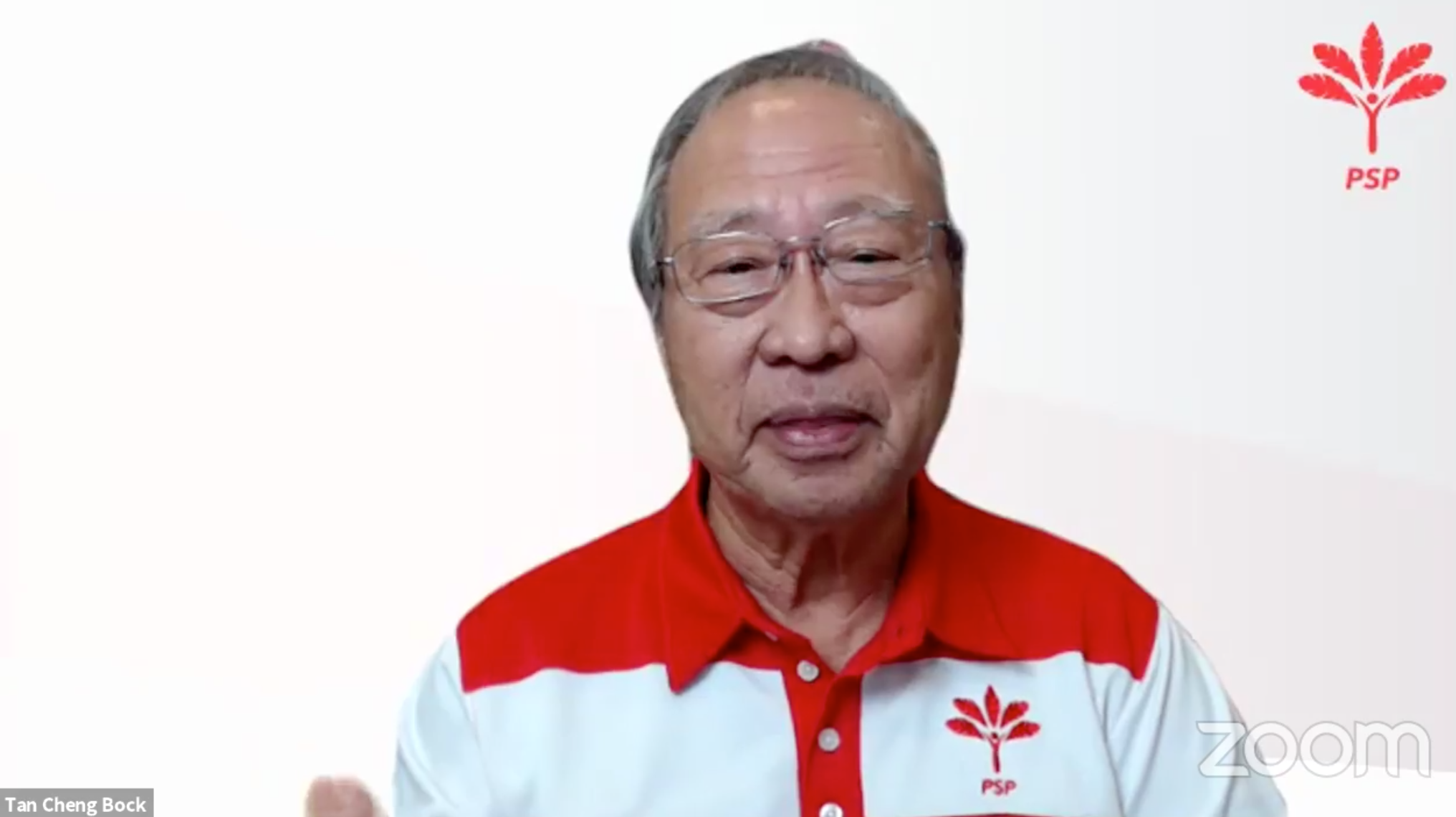By Aretha Sawarin Chinnaphongse and Jillian Colombo
Singapore — The Progress Singapore Party webinar held on Thursday (June 4) provided an opportunity for a discussion of a longstanding concern for Singaporeans: High healthcare costs.
The question posed to the nine panellists asked for a proposal to keep healthcare costs affordable in the country without increasing taxation. Concern over affordable healthcare is not new. Poll results posted to the Zoom audience in the webinar confirmed this sentiment, with 47% of the poll participants disagreeing that healthcare is affordable in Singapore.

PSP Secretary-General Dr Tan Cheng Bock, who took the question, believes that a “paradigm shift” is needed to keep healthcare affordable in Singapore. He said: “The PSP will move from this curative system to the preventive system. If we had adopted a preventive system where the cost is so much lower, then we do not need to worry about using so much of our MediSave.”
He explained that the current healthcare system is one that focuses on treatment, rather than prevention. The healthcare costs incurred by the individual is thus high when one gets hospitalised.
Dr Tan states that “healthcare costs will always go up”, thus, the onus is on the individual to maintain good health. To ensure reduced spending on healthcare and making healthcare affordable for the individual, he suggests implementing comprehensive, educational programmes in schools.
These would be key in inculcating the importance of individual responsibility in keeping healthy from a young age. In doing so, individuals would be more cautious about their health and will less likely be hospitalised in future.
Mr Shaun Ming, the youngest member on the panel, added to this as well. He voiced that Singapore should take a more “patient-oriented approach”, whereby the patient himself is the one in charge of his health. The point on citizens being the “primary stakeholder of the healthcare system” is re-emphasised.
He gave a statistic that out of the 3,000 active decisions individuals make on health a year, visits to the doctor are made about once or twice annually. He said: “The patient has to feel like he is the one that is responsible.” He asserts that by moving into “another dimension” of healthcare, only then that the preventive steps indicated by Dr Tan will prove successful.
Another panellist also had comments to add on the increasing healthcare costs.
Mr Francis Yuen, a member of the party’s Central Executive Committee, in tackling a question on Singaporeans having little savings for retirement despite CPF, stated that the Government should “bear a larger portion, some say all” of medical costs to ensure sufficient funds for retirement. He also suggested taking a hand at Singapore’s reserves to further reduce the costs of healthcare and housing. /TISG
Aretha Sawarin Chinnaphongse, editorial intern of TheIndependent.sg, is a penultimate student from the National University of Singapore. She is majoring in Global Studies and specialising in International Communications and South Asia.
Jillian Colombo, editorial intern of TheIndependent.sg, is a budding historian studying at the National University of Singapore. She believes in using history to understand the affairs of today.

